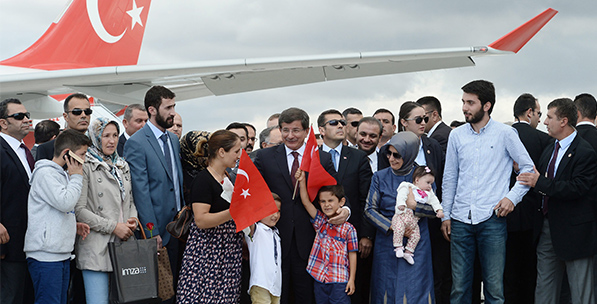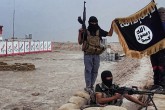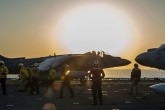The 46 hostages, including Turkey’s Consul General in Mosul, who were captured by Islamic State of Iraq and al-Sham (ISIS) militants when they overran Mosul 101 days ago, were returned to Turkey on Saturday. Although the details of the process and operation have not been revealed yet, information released on Saturday indicated a very disciplined and well organized “intelligence operation” ran by Turkish intelligence (MIT). It was also made public that Turkish agents and security forces carried out the operation without any assistance or support from other foreign agencies and depended on their resources and local sources alone. Apparently, Turkish intelligence had been following the situation on the ground closely for weeks, tracking the whereabouts of the hostages while revising its previous hostage rescue operations in different countries such as Afghanistan and Lebanon. During this time, ISIS had changed the locations of hostages multiple times and in several different instances the conflict in the region postponed any operation to try and withdraw the hostages.
This is the only information regarding the operations that has been released so far. In the coming days we will possibly get more information from the hostages concerning the 101 days they were held hostage, their treatment by ISIS militants and the process that ended their captivity. This information and some other details that may be released by Turkish sources will shed more light on ISIS and the organization’s hostage taking operations.
Hostage-taking events are probably one of the most challenging tests governments around the world experience. Due to the sensitivity of the situation and the potential severity of its outcome, hostage- taking incidents generate a lot of controversy and debate. One of the best examples of how quickly hostagetaking situations can escalate is the Iran hostage crisis, where 52 U.S. diplomats and citizens were taken hostage by Iranian students supporting the revolution of 1979 This crisis had both domestic and international political repercussions, especially the operations which failed to rescue the hostages in the following year. These events, as well as the successful intelligence operation to retrieve the hostages, were loosely covered in the 2012 U.S. film “Argo,” directed by Ben Affleck. Later, the Iranian-contra affair exposed to the world a more complicated plan that also aimed to rescue American hostages in Lebanon by selling weapons to small groups of Iranian military.
In recent years we have also witnessed difficult and challenging operations. For example, the 2002 Moscow theater hostage crisis saw how an operation can endanger the lives of hostages with around 130 of the 850 people taken hostage by Chechen rebels killed as a result of the Russian force’s raid. The recently publicized U.S. operation to rescue James Foley and other American hostages from ISIS captivity also shows how an expired intelligence and problems regarding tracking the whereabouts of hostages could result in the failure of these operations.
Furthermore, the recent debates regarding the release of Bowe Bergdahl – who was taken captive by the Taliban in 2009 – this year in exchange for five high profile Taliban members in U.S. custody shows how these operations can generate significant domestic political controversy. A similar and more European orientated debate has started in recent weeks regarding the alleged ransom money paid by Western governments to ISIS for the release of their nationals. So far the information released by Turkish sources in regards to hostage operations has demonstrated that Turkey neither paid ransoms nor offered or provided an exchange of hostages for prisoners. The information also reveals that there were no military clashes between Turkish security personnel and ISIS forces. Instead, the connections between different institutions of the Turkish government that it established with different actors in Iraqi society, including some Sunni tribes, played an important role in the success of thi
In this article
- Foreign Policy
- Opinion
- 1979
- 2002
- 2009
- 2012
- Afghanistan
- DAESH
- Europe
- Global Actors | Local Actors
- Iraq
- ISIS
- Islam
- Islamic
- Islamic Republic of Iran
- Lebanon
- Middle East
- Mosul
- Russia
- Sunni
- Turkish Foreign Policy
- Turkish-American Relations
- Türkiye-US Relations
- Türkiye's National Intelligence Organization (MIT)
- United States (US)
- Western World



